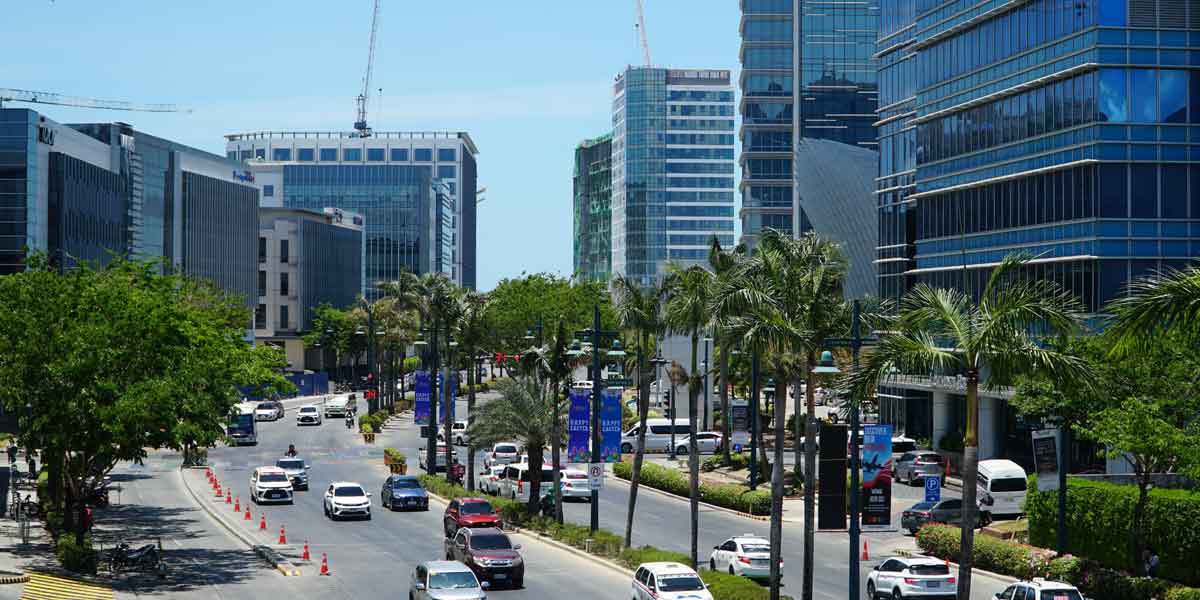
By Rjay Zuriaga Castor
Makati City Mayor Abby Binay has advised Iloilo City to attract more businesses to diversify its revenue sources and reduce reliance on real property tax (RPT).
“Encourage more businesses to open in Iloilo City, and it will generate more taxes. Then chances are, you won’t be too dependent on national tax allocation and RPT,” Binay told the Daily Guardian on Sunday.
Binay arrived in Iloilo City on Sunday, November 17, ahead of the 44th CityNet Executive Committee Meeting.
The meeting runs from November 18 to 20 at the Iloilo Convention Center brings together over 100 urban leaders and stakeholders from across the globe to discuss sustainable urban development and foster international partnerships.
In Makati City, Binay noted that over 80 percent of its tax revenue comes from business taxes, with RPT contributing only a small portion of the city’s collection.
Earlier this year, Makati announced plans to reduce RPT rates after reaching 80 percent of its 2024 tax collection target.
Binay acknowledged, however, that revenue structures depend on local economic activity, noting that cities without substantial business tax revenue often rely heavily on RPT.
She suggested Iloilo City gain the trust of businesses by creating a business-friendly environment, supported by strong patronage from the local government.
Binay’s remarks come amid a 300 percent increase in Iloilo City’s RPT in 2024, following the approval of an updated valuation framework in June 2023.
The new framework raised the land levy rate from 1.5 percent to 2 percent, while the ad valorem tax on idle lands increased from 1 percent to 2 percent for residential lands and from 2 percent to 3 percent for agricultural, commercial, and industrial lands.
The significant hike has drawn criticism from business owners, who expressed concerns over its impact on their financial stability.
In response to these complaints, the Iloilo City government approved an ordinance granting a 40 percent discount on RPT for two years, covering fiscal years 2024 and 2025.
Under the ordinance, taxpayers will pay only 60 percent of the RPT during this period. However, the discount excludes the additional ad valorem tax on idle lands.
Full payment of the updated RPT rates will begin in 2026, as outlined in the ordinance.
BOOST SERVICES AND PROGRAMS
Binay also emphasized the importance of showing taxpayers how their contributions are used.
“At the end of the day, what’s important is the return of programs from the taxes paid,” she said.
In Makati, Binay noted, residents are highly compliant in paying taxes because they see tangible benefits through the city’s programs and services.
“It’s not about the rate or how high the tax is. The question is how you intend to use the tax you collect. If the programs are good, people will be willing to pay the tax, even if it’s high,” she said.
‘FIRST AMONG EQUALS’
In October 2024, Makati City was again ranked first among Philippine cities for fiscal autonomy, according to the Department of Finance (DOF).
A report from the DOF’s Bureau of Local Government Finance (DOF-BLGF) showed that Makati recorded the highest ratio of local source revenues to total current operating income for 2022 and 2023, at 86.84% and 90.60%, respectively.
City Treasurer Jesusa Cuneta emphasized that these figures underscore Makati’s financial independence.
“Makati’s high ratio demonstrates its ability to generate substantial local revenues, reducing dependency on external sources such as the national tax allotment and shares from the Philippine Economic Zone Authority (PEZA) and the Philippine Charity Sweepstakes Office (PCSO),” Cuneta said.
In addition to fiscal autonomy, Makati also posted the highest total current operating expenditure per capita among cities, with PHP 24,050 in 2022 and PHP 23,995 in 2023, reflecting its investment in public services and infrastructure.
As of the end of August 2024, Makati surpassed its revenue target of PHP 18.4 billion, collecting PHP 18.8 billion—102% of its goal.
Business tax emerged as the city’s top revenue source, contributing PHP 10.22 billion, followed by real property tax at PHP 6.19 billion.
The remaining local revenues included PHP 748.82 million from fees and charges, PHP 310.12 million from economic enterprises, and PHP 411.75 million from interest income.
External sources contributed PHP 670.76 million from the national tax allotment, PHP 248.13 million from PEZA, and PHP 4.22 million from PCSO.
Makati’s business ecosystem also showed robust growth, with 3,900 new businesses registered as of September 2024, representing a combined capital investment of PHP 31.87 billion. During the same period, 34,771 business establishments renewed their permits, reporting gross sales of PHP 1.87 trillion.






















